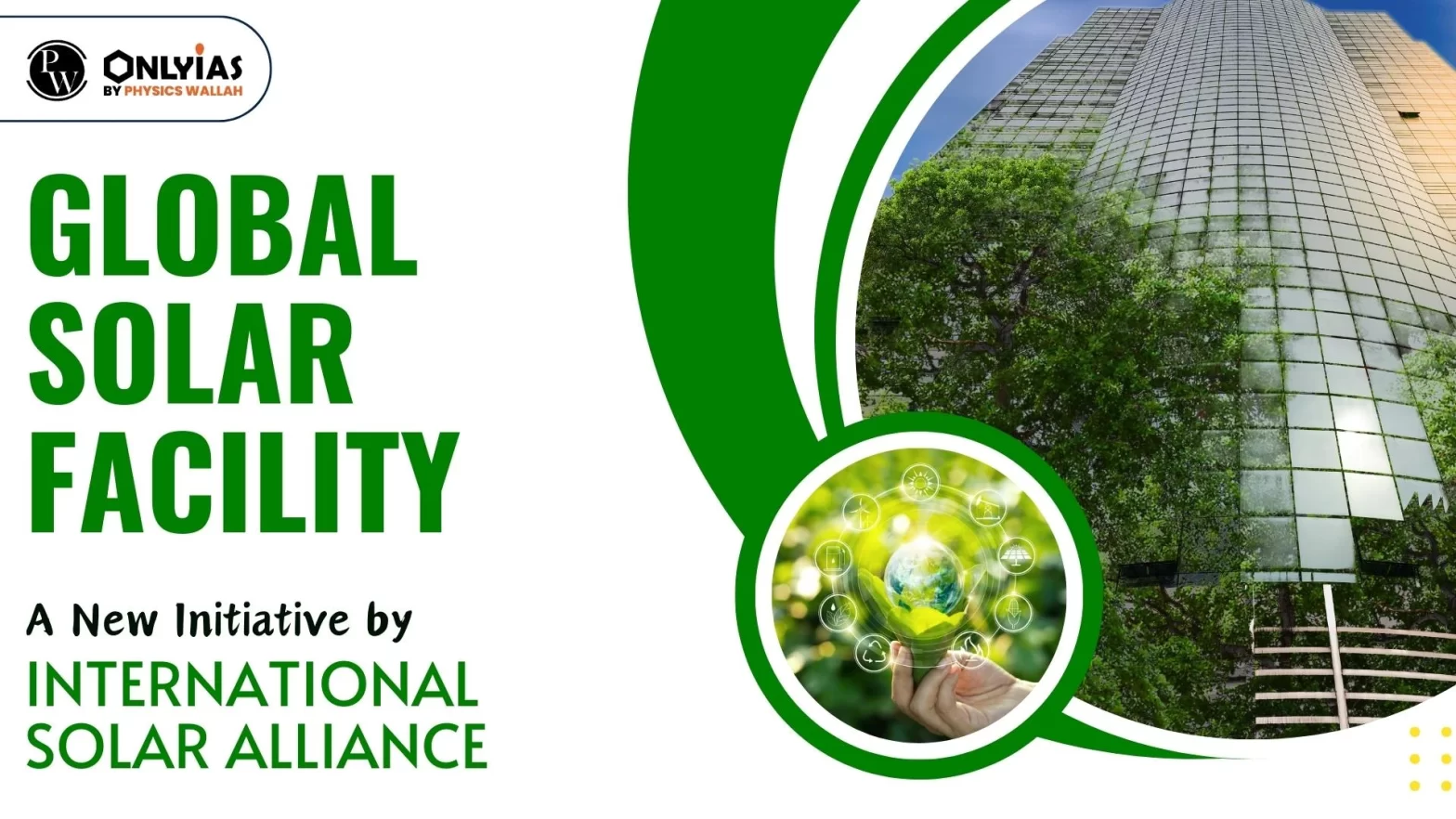Context: The International Solar Alliance (ISA) has announced that the Global Solar Facility (Global Solar Facility) is set to receive a capital contribution of $35 million dollars.

The International Solar Alliance (ISA) holds significant importance for both countries worldwide and specifically for India due to several reasons:
| Key Initiatives under ISA:
Various initiatives under ISA include: 1. Solar Technology Application Resource Centre (STAR C) Initiative: Objective: Building human capacity and expertise in energy transition activities. Implementation: STAR C centers established as regional hubs for solar energy knowledge and technology. Impact: Enhancing skills and knowledge in member countries, fostering solar energy adoption. 2. Indian Technical and Economic Cooperation (ITEC) Scheme: Objective: Providing training to master trainers in solar energy. Funding: Fully supported by the Indian government. Duration: 21-day training sessions. Impact: Training 133 candidates from 25 countries at the National Institute of Solar Energy, Gurugram in 2018-2019. 3. Solar Fellowships for Mid-Career Professionals: Objective: Developing skilled manpower for managing solar energy projects and policies. Recipients: Mid-career professionals from ISA member countries. Current Participation: 21 candidates from 18 ISA member countries pursuing Master’s degrees in RE Management and Economics. 4. One Sun, One World, One Grid (OSOWOG) Initiative: Objective: Connecting regional grids for efficient cross-border transfer of solar power. Vision: Realizing global renewable energy potential. Significance: Facilitating the efficient utilization of solar energy resources on a global scale. 5. Affordable Finance Mechanisms: Approach: Collaboration with organizations like the Green Climate Fund and the World Bank’s International Finance Corporation. Goal: Making solar power accessible through innovative financing methods, ensuring affordability and scalability. 6. Solar-Powered Mini-Grids: Focus: Development of mini-grids powered by solar energy. Target: Providing electricity to off-grid and underserved communities. Impact: Enhancing energy access, particularly in remote areas, contributing to poverty reduction. 7. Other Solar Energy Projects: Scope: Includes solar agriculture pumps, rooftop installations, solar water heaters, solar street lighting, etc. Diverse Interventions: Addressing various aspects of solar energy application, from agricultural needs to urban lighting, promoting sustainable energy solutions. |
|---|
Addressing these challenges is crucial for the International Solar Alliance to effectively promote solar energy adoption, achieve energy security, and contribute significantly to global sustainable development.
To chart a successful path forward, the International Solar Alliance (ISA) can adopt the following strategies:
| Must Read | |
| NCERT Notes For UPSC | UPSC Daily Current Affairs |
| UPSC Blogs | UPSC Daily Editorials |
| Daily Current Affairs Quiz | Daily Main Answer Writing |
| UPSC Mains Previous Year Papers | UPSC Test Series 2024 |
Global Solar Facility is a payment guarantee fund by ISA, stimulating investments in solar power projects, focusing on underserved regions in Africa.
ISA, along with the Indian government, is contributing $35 million to the Global Solar Facility.
Global Solar Facility aims to attract private investment, mitigate project risks, and address regulatory gaps in solar energy, accelerating its adoption in Africa.
ISA's strategy aims to mobilize $1000 billion in solar energy investments, provide clean energy access to 1000 million people, install 1000 GW of solar energy capacity, and reduce 1000 million tonnes of CO2 emissions annually by 2030.
ISA has 114 Member and Signatory countries as of now.
Global Solar Facility bridges the investment gap in solar energy projects, especially in developing nations, by providing guarantees, reducing risks, and offering technical assistance.
Global Solar Facility intends to expand to regions like Asia, Latin America, and the Middle East, tailoring its Regional Facilities to meet specific requirements.
ISA has the Assembly, Steering Committee, and Secretariat as its key governance bodies.
ISA focuses on analytics & advocacy, capacity building, programmatic support, and readiness and enabling activities in its programs.
ISA's vision is to ensure every home, regardless of its location, has access to light through solar energy solutions, making the sun brighter together.

<div class="new-fform">
</div>